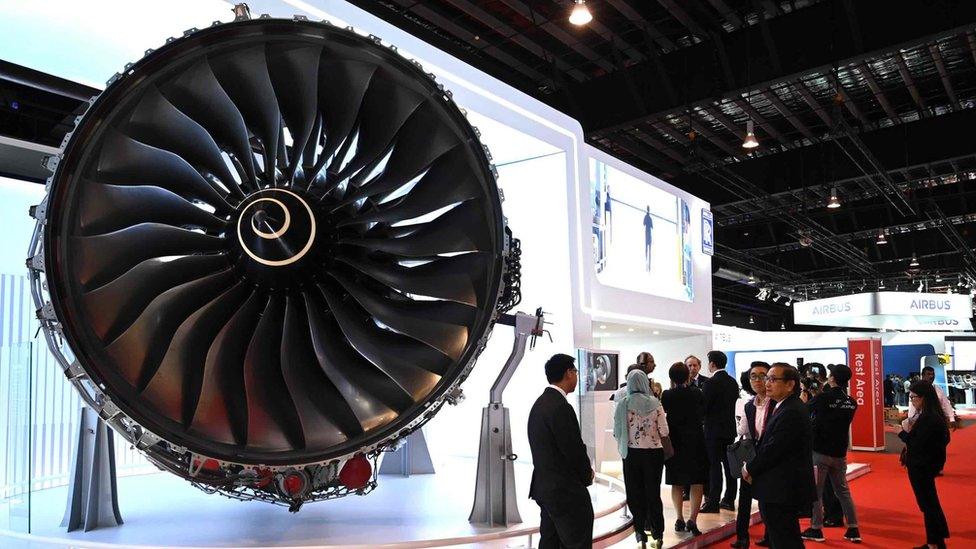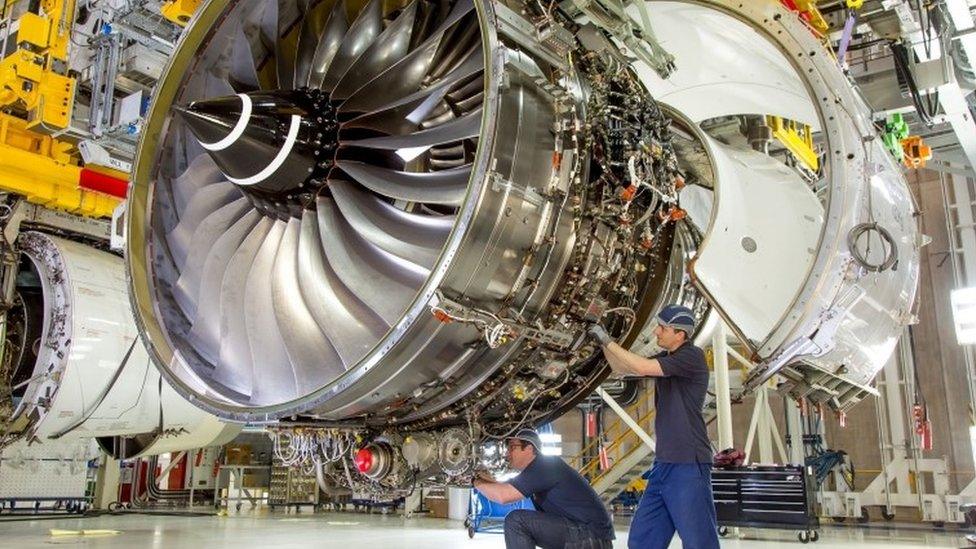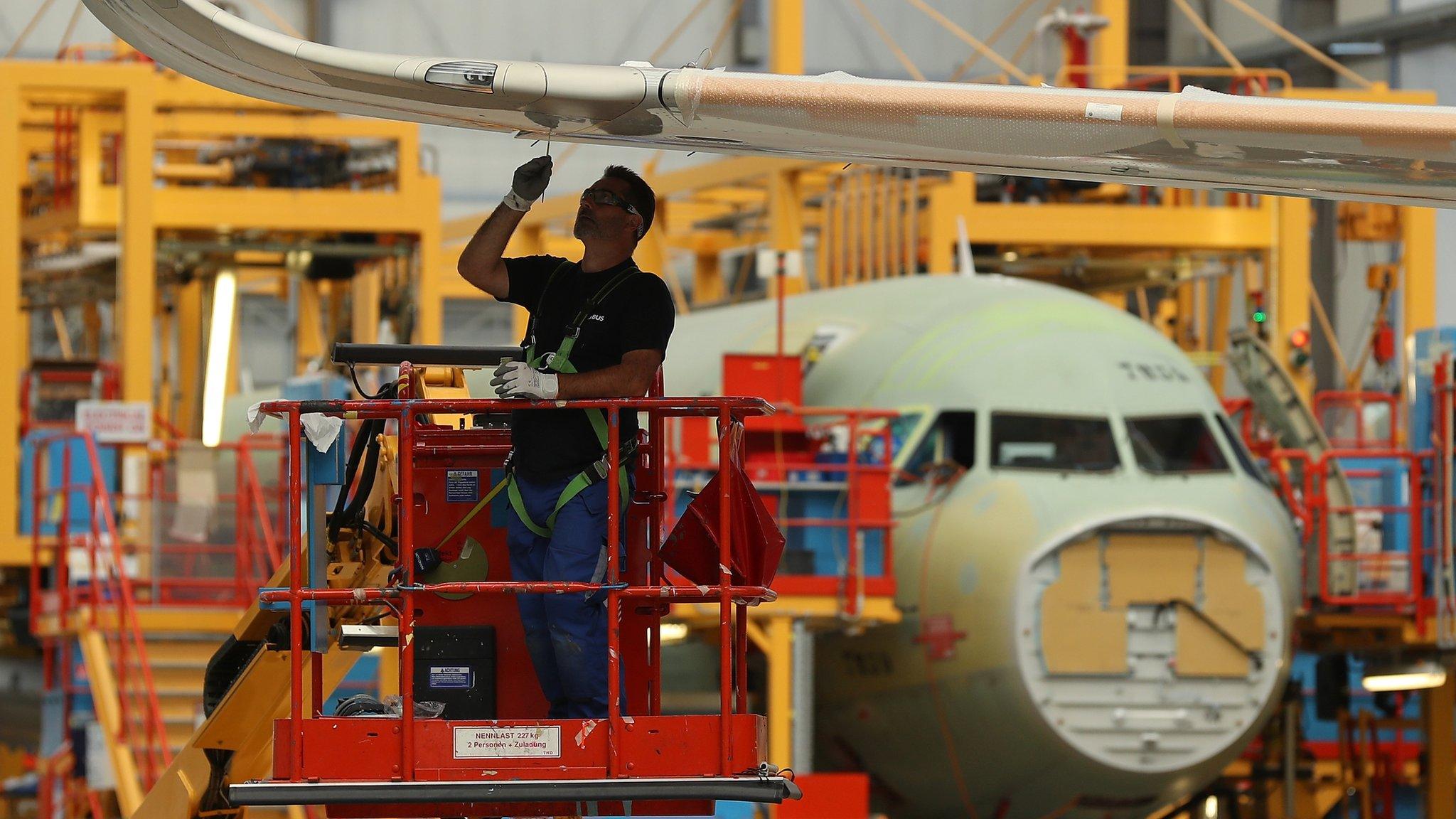Rolls-Royce facing £2bn cash reserve hit as flight numbers fall
- Published
- comments

Aerospace giant Rolls-Royce expects to burn through more cash than expected his year as planes powered by its engines fly less amid the pandemic.
The company, already slashing billions of pounds in costs, expects £2bn of cash to leave the business in 2021, more than double forecasts.
It is paid on the number of hours its engines are in use, so the Covid restrictions hit its revenues.
New strains of the coronavirus are also making predictions harder, it added.
Rolls-Royce, whose engines power many Boeing and Airbus aircraft, said it expected flying hours for this year to be 55% of those seen in 2019, which was down from its previous estimate of 70%.
The news sent shares in the company down as much as 9% in early London trading.
To shore up its finances, the company has already announced plans to sell assets worth billions of pounds. It is also cutting more than £1bn in costs by axing 9,000 jobs and closing factories.
"Continued progress on vaccination programmes is encouraging for the medium-term recovery of air traffic and economic activity," Rolls-Royce said in a statement on Tuesday, external.
"In the near term, however, more contagious variants of the virus are creating additional uncertainty.
"Enhanced restrictions are delaying the recovery of long-haul travel over the coming months compared to our prior expectations, placing further financial pressure on our customers and the wider aviation industry, all of which are impacting our own cash flows in 2021."
The company has about £9bn it can draw upon, it said, meaning that it was "confident that despite the more challenging near-term market conditions we are well-positioned for the future."
Rolls-Royce also said it expected to stem the tide of money flowing out of the business in the second half of the year.


Such is the complicated and long-term nature of Rolls-Royce's business that analysts tend to not to look too closely at one year's profit figures.
They can be distorted by one-off effects, in particular swings in the aero-engine maker's big foreign-exchange hedging programme.
Professional investors do, however, pay close attention to the company's cash flow - how much money it is earning or burning in a given year.
Management too have highlighted this to shareholders as a measure of how well the company's turnaround programme is progressing, with chief executive Warren East having a target of a £1bn coming into the business.
This was seriously derailed by the pandemic, with analysts expecting the grounding of airline fleets to mean that Rolls-Royce would burn through about £1-1.5bn this year.
This morning Rolls-Royce said the second wave of the coronavirus meant even that was too optimistic.
There is no question of the company running out of money - thanks to a giant fundraising last year, it has about £9bn in reserves it can call on. But the signs are worrying.
If the pandemic continues to restrict long-haul air travel - and New Zealand's Prime Minister, Jacinda Ardern, said it was likely that the country's borders would remain closed at least for the rest of the year - then Rolls-Royce's will have to dip deep into those reserves.
The shares, already battered by the pandemic, were down 9% in early trading. They have lost about three-quarters of their value in the past three years.

- Published14 January 2021

- Published18 December 2020

- Published26 October 2020
